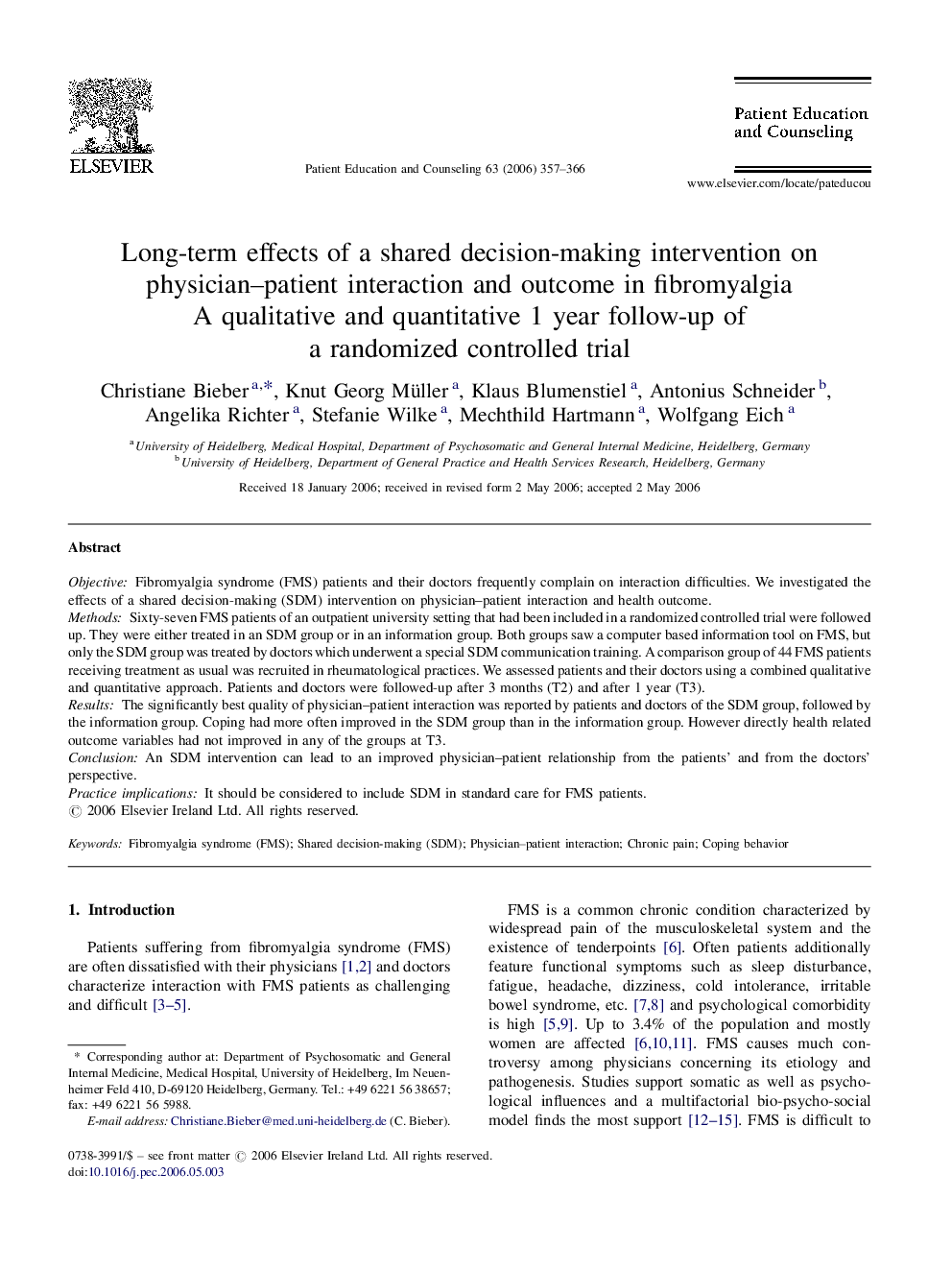| Article ID | Journal | Published Year | Pages | File Type |
|---|---|---|---|---|
| 3816088 | Patient Education and Counseling | 2006 | 10 Pages |
ObjectiveFibromyalgia syndrome (FMS) patients and their doctors frequently complain on interaction difficulties. We investigated the effects of a shared decision-making (SDM) intervention on physician–patient interaction and health outcome.MethodsSixty-seven FMS patients of an outpatient university setting that had been included in a randomized controlled trial were followed up. They were either treated in an SDM group or in an information group. Both groups saw a computer based information tool on FMS, but only the SDM group was treated by doctors which underwent a special SDM communication training. A comparison group of 44 FMS patients receiving treatment as usual was recruited in rheumatological practices. We assessed patients and their doctors using a combined qualitative and quantitative approach. Patients and doctors were followed-up after 3 months (T2) and after 1 year (T3).ResultsThe significantly best quality of physician–patient interaction was reported by patients and doctors of the SDM group, followed by the information group. Coping had more often improved in the SDM group than in the information group. However directly health related outcome variables had not improved in any of the groups at T3.ConclusionAn SDM intervention can lead to an improved physician–patient relationship from the patients’ and from the doctors’ perspective.Practice implicationsIt should be considered to include SDM in standard care for FMS patients.
